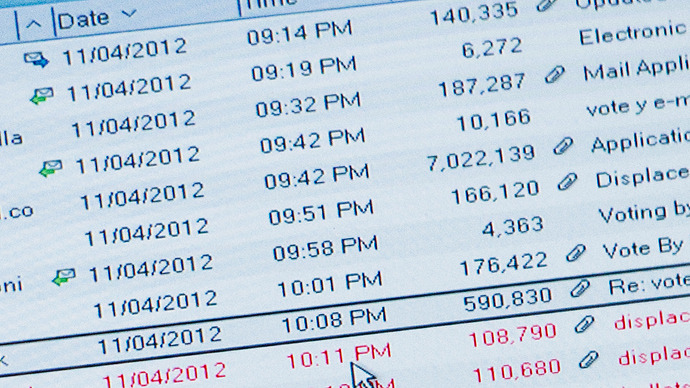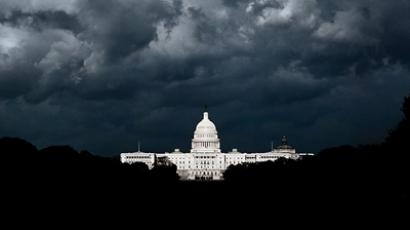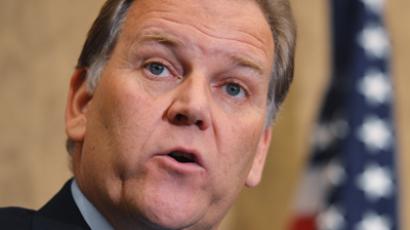British ‘snoopers’ charter’ under revision amid harsh criticism

The UK draft Communications Data bill that could allow the government to keep tabs on emails and Skype is being reviewed after a wave of criticism. The opposition has slammed the law as potentially disastrous and an affront to personal privacies.
The legislation is currently being revised by a commission of
MPs after a torrent of criticism over the scope of the law. The
prime minister received a letter from cyber security experts on
Monday, calling the bill overly expensive with the potential to
stifle innovation and undermine personal privacies, reported the
Times.
"As a society, it would be stupid to build the infrastructure
that could be used to oppress us,” Ben Hammersley, a Number 10
Downing Street tech advisor, told Tank Magazine. “The fact that
we don’t know who is going to be in charge in 10 years’ time means
that we shouldn’t give them free toys to play with."
The draft bill has been championed by Home Secretary Theresa May,
who described it as vital in combating pedophiles, fraudsters and
extremists. However, civil liberties groups condemn the legislation
as a step too far and have branded it as a “snoopers’
charter.”
When the bill initially emerged in June of last year, Hammersley
spoke out against it in a podcast, describing it as laughable and
comparable to draconian web regulations in North Korea.
Liberal Democrat leader and Deputy Prime Minister Nick Clegg also
threatened to block the bill if dramatic changes were not made,
calling on lawmakers to go back to the drawing board.
The plans outlined in the bill would oblige internet providers to
store web browsing history, details of messages sent over social
media sites, like Facebook and Twitter and voice calls made over
the web. The legislation stipulates that this information should be
retained for a year and would allow police access to it without
asking permission if they are investigating a crime.
The MP commission charged with reviewing the legislation pledged to
consult with "technical experts, industry, law enforcement
bodies, public authorities and civil liberties groups.”
However a number of groups, including the Liberty and Open Rights
group, Big Brother Watch and Privacy International, have written to
the UK Home Office to complain that they have not been consulted.
In a letter to the Home Secretary Theresa May they said that the
revision of the bill was “unnecessarily closed.”
The controversial legislation has seen the UK’s coalition
government divided and is likely to continue to be a bone of
contention until the wording of the bill is sufficiently
refined.
The anticipated cost of the draft bill currently stands at 1.8
billion pounds (US$2.7 billion) and if the law is passed by
parliament it will come into effect in 2014.














